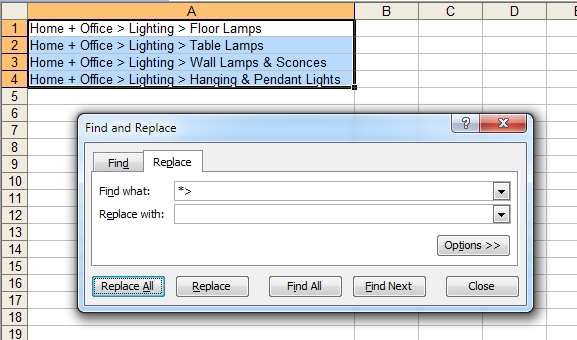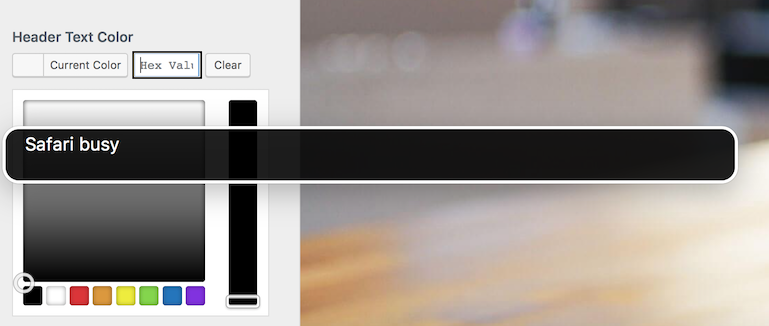Microsoft Word 2016 Mac Wild Cards Tab Character

- Microsoft Word 2016 Mac Wild Cards Tab Character List
- Microsoft Word 2016 Mac Wild Cards Tab Character Free
- Developer Tab Microsoft Word 2016
The question mark matches any single character; the asterisk matches any group of characters (commonlycalled a text string). Word looks past the asterisk to see whether the search is limited by anyother characters.
On the far right of the Word 2016 Insert tab dwells the Symbols group. Two items are found in that group: Equation and Symbol. (If the window is too narrow, you see the Symbols button, from which you can choose Equation or Symbol.) Click the Symbol button see. How to enter a tab character in a Word table by Susan Harkins in Microsoft Office, in Software on March 23, 2008, 5:00 PM PST Enter literal Tab character in a Word table.
For example, searching for wo*d finds text such as word, world, andworshipped. Press Ctrl+H to open Find and Replace dialog box:
To use these wildcard characters, select the Use wildcards check box in theFind and Replace dialog box:
These wildcards are handy for finding words that you don't know how to spell.
Microsoft Word 2016 Mac Wild Cards Tab Character List
For example, if you are not sure how to spell receive, you can type rec??ve. Word then locatesany word that begins with rec followed by any two characters followed by ve.
Search Operators:
- ? - Any single character.
For example, d?g finds dig, dog, and dug, but notdrug and ridge.
- * - Zero or more characters: finds a word with the specified characters and zero or morecharacters in place of *.
For example, des*t finds descent, desert, destiny,dessert, and destruct and even excludes the, codes - to.
- < - Beginning of the word.
For example, <tel finds telemarketing, telephone, andtelevision, but not hotel and retell.
- > - End of the word.
For example, ion> finds aggravation, inspiration, andinstitution, but not ionic and bionomics.
- @ - Preceding one or more: finds one or more of the characters immediately preceding the @sign.
For example, ^[email protected]^t finds one or more paragraph break marks followed by a tab mark.
Gotthard. So, even if you did find an OS Office download, you would still need a valid OS product key to install and use Microsoft Office 2011 for Mac.Earlier all the six versions of Microsoft Office 2011 when they were launched they were only supposed to launch these all in the USD prices and then after they used to launch in the Indian market in the currency of the Indian rupees. In the month of September and in the year of 2006 the USD prices of Microsoft Office 2011 for Mac was released by certain retail channels of the internet as well as on the radio. This unique number is required during the installation of Microsoft office os. And all these six variants of Microsoft Office 2011 for Mac were downloaded from the various Microsoft market places.
- [] - One of the specified characters.
For example, b[aeiu]t finds bat, bet, bit, and but,but not debt and boot.
- [-] - Any character from the range.
For example, [a-m]end finds bend, fend, lend, andmend (the first character in this case is a, m, or any letter between them),but not rend and end.
- [!] - Not: finds the text but excludes the characters inside the brackets.
For example, t[!ae]ll finds till and toll but not tall andtell.
- [!a-z] - Any single character with the exception of the ones in the range inside the bracket.
For example, m[!o-z]st finds mast and mist, but not most ormust.
- {n} - Exact number of occurrences: finds the specified number of occurrences of the letterimmediately before the {.
For example, to{2} finds too and tool but not to.
- {n,} - Minimum number of occurrences: adding a comma after the number tells Word to look forat least that number of occurrences.
For example, a{4,} finds four or more of the letter a in a row.
- {n,n} - Minimum and maximum number of occurrences.
For example, 10{2,3} finds 100 and 1000, but not 10.
- () - Expression: lets you 'nest' search expressions within a search term.
For example, <(pre)*(ed)> finds presorted and prevented,but not repressed and precedent.
See also this tip in French:Utilisation de caractères génériques pour rechercher.
Microsoft Word 2016 Mac Wild Cards Tab Character Free
Word 2016 permits you to use wildcard operators in searches. A wildcard operator is a character that represents characters in a search expression. Wildcards aren’t for everybody. Using them requires a certain amount of expertise, but after you know how to use them, wildcards can be invaluable in searches and macros.
The following table explains the wildcard operators that you can use in searches. Click the Use Wildcards check box if you want to search using wildcards.
| Operator | What It Finds | Example |
|---|---|---|
| ? | Any single character | b?t finds bat, bet, bit, and but. |
| * | Zero or more characters | t*o finds to, two, and tattoo. |
| [xyz] | A specific character, x, y, or z | t[aeiou]pper finds tapper, tipper, and topper. |
| [x-z] | A range of characters, x through z | [1-4]000 finds 1000, 2000, 3000, and 4000, but not 5000. |
| [!xy] | Not the specific character or characters, xy | p[!io]t finds pat and pet, but not pit or pot. |
| < | Characters at the beginning of words | <info finds information, infomaniac, and infomercial. |
| > | Characters at the end of words | ese> finds these, journalese, and legalese. |
| @@ | One or more instances of the previous character | sho@@t finds shot and shoot. |
| {n} | Exactly n instances of the previous character | sho{2}t finds shoot but not shot. |
| {n,} | At least n instances of the previous character | ^p{3,} finds three or more paragraph breaks in a row, but not a single paragraph break or two paragraph breaks in a row. |
| {n,m} | From n to m instances of the previous character | 10{2,4} finds 100, 1000, and 10000, but not 10 or 100000. |

Developer Tab Microsoft Word 2016
You can’t conduct a whole-word-only search with a wildcard. For example, a search for f*s not only finds fads and fits but also all text strings that begin with f and end with s, such as for the birds. Wildcard searches can yield many, many results and are sometimes useless.
To search for an asterisk (*), question mark (?), or other character that serves as a wildcard search operator, place a backslash () before it in the text box.
